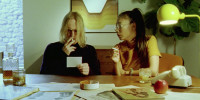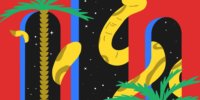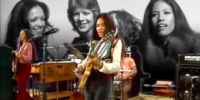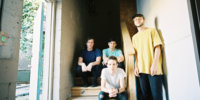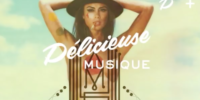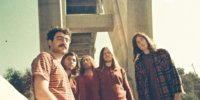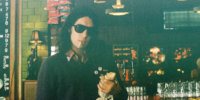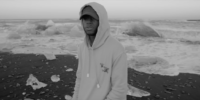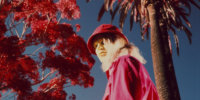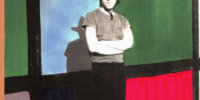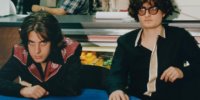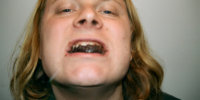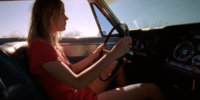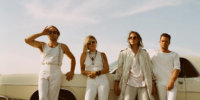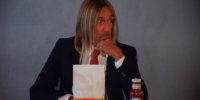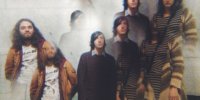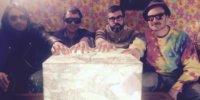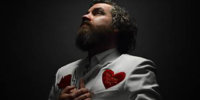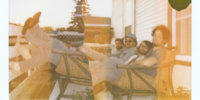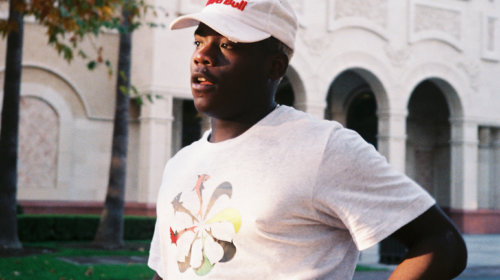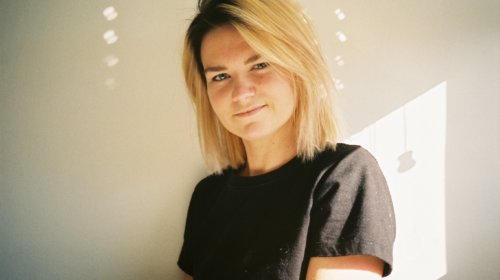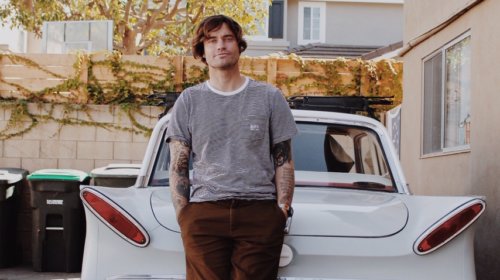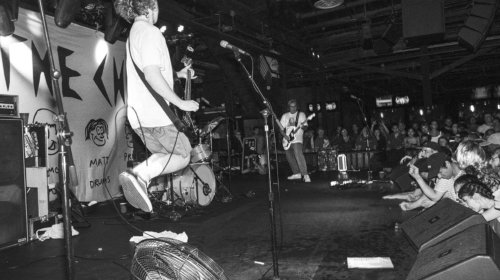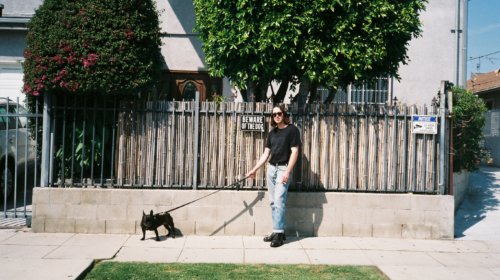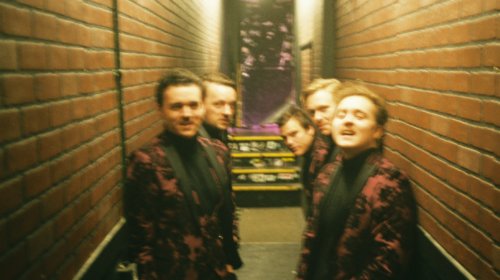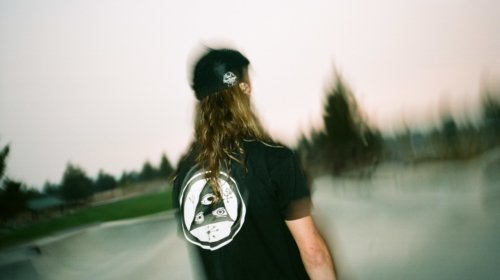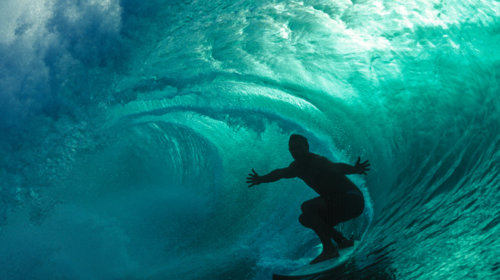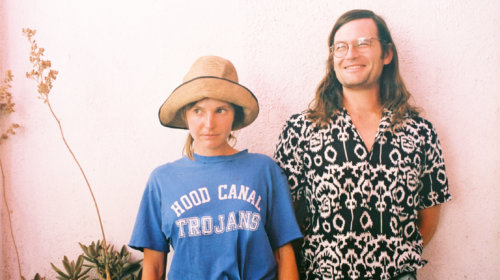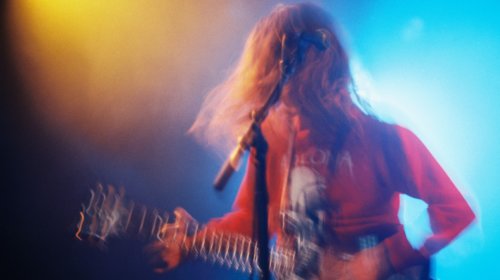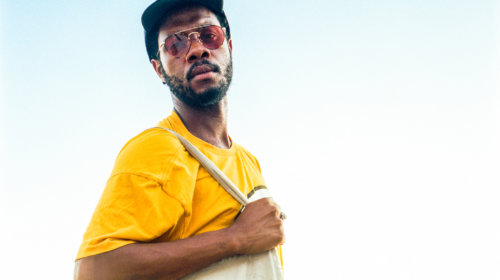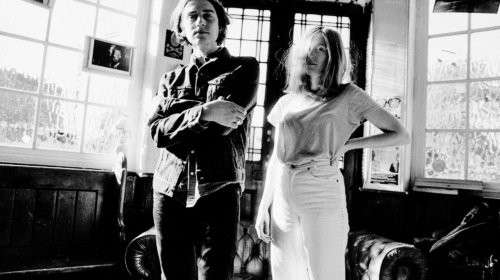Entrance, the musical force that is Guy Blakeslee, first crept into my life on a mixed CD in 2003. Blakeslee’s voice, infused with blues and folk and soothing heartache, and his ability to slay a guitar hooked me on my first listen. And then The Entrance Band happened, a full-fledged psychedelic experience of a live show. Blakeslee would stand on his amp, completely engaged and at the same time on a different dimension entirely, while Paz Lenchantin and Derek James wailed a wave of sound over the audience. It’s my constant reference when I think of LA psych bands. But then Blakeslee transitioned into the next phase of his life, and returned to a more stripped down, folk laden style, except this time with a twist, and a new name.
His debut album as Guy Blakeslee was a huge step forward, not to mention a vulnerable moment for the otherwise bold artist. “I’ve always been uncomfortable with my real name,” he told me as we sat outside the Echo a few months back on the eve of his European tour. But then sometime between the death of David Bowie and Prince, Blakeslee started seeing signs. Literal “entrance” signs. And he knew his identity was once again about to morph.

Book of Changes, the latest album by Entrance – yes he’s on Entrance now – dropped in February on Thrill Jockey, and it’s familiar yet matured resemblance to Blakeslee’s entire repertoire is stunning. Plus it reminds me of Lana Del Rey, which is always a good thing. We talk about it all below. So keep reading, listen to the album, and, most of all, see Entrance live. He may no longer be standing on amps without a shirt on, but his live performance and fingerpicking skills are unreal. –Maya Eslami

WHAT YOUTH: Tell me about your transformation as Entrance. When you first started making music, you were Entrance, and then the Entrance Band, then Guy Blakeslee for two albums. And now you’re back.
ENTRANCE: So there’s a story about how I started to do that. When I first started calling myself “Entrance”, I’d notice entrance signs everywhere. I’d be like, “There it is again!” And when we started The Entrance Band, to not confuse people, I stopped going by Entrance as my name. It’s been a pretty long time. Almost ten years. And then I made some records under my real name. I’ve always been uncomfortable with my real name – I feel like that’s why a lot of musicians come up with a different name, even like Bob Dylan, people still calling their solo projects another band name. Most people are not super excited by their birth name. And so I embraced that, and kind of broke through being uncomfortable with that, and learned to differentiate myself from the band, and I made a couple of things under Guy Blakeslee. And then I started seeing the signs again, in a noticeable way. When David Bowie died, the moment that I heard that David Bowie had died, the voice in my head that wasn’t me deciding to say this was like, “Entrance. You must be entrance” [laughing]. I don’t think it was David Bowie, but it was like my higher-self person. Like cosmic energy responding to the news that David Bowie died.
And that was about a year-and-a-half ago.
That started sticking with me more. But I still hadn’t done that yet, changed my name. I was already halfway finished with [Book of Changes] before I started using that name again. But I was feeling like it was that. And then Prince died, and the same thing happened again. And it was really more intense. The next day was my birthday, and I changed the name back to Entrance.

How many of the songs did you have down as Guy Blakeslee?
So there was an EP with four songs, and an album with eight. And I had the whole EP and four songs from the album done. And then I changed myself back to Entrance. And then I figured out who was gonna release the music, and then I split it into two records. When I finished the last four songs that I wrote and recorded [for the album], I knew it was Entrance. But I started writing the album not knowing that. I was definitely feeling called to be Entrance again.
How do you feel about putting it out?
I feel really good about it. It’s the first thing that I’ve released, I feel like, that comes out at a time when- like it’s entering into the world in a time when the way that we receive and perceive music has transformed from one way to another. And I’m sure it will continue to change, but it’s sort of like, I don’t like to mention the names of companies, but for instance, with Spotify – “It’s out now!” And you can just start listening to it.
Do you think that’s good?
There’s stuff that I’ve just gotten into, that just came out. Like, “Oh, now it’s there. Now I can just play it.” And then I’m listening to it driving or I’m listening to it walking. I like the way that music becomes that accessible. You can incorporate it into what you’re doing. I like putting something out into that environment, where someone’s gonna listen to it in a field, or someone’s gonna listen to it in the woods, or even at the gym. it’s just on this device that everyone has in their pocket [laughing]. I feel like there are downsides to that, too, obviously, but I also feel like, something about- if you really think about why people make music, it’s to communicate and be heard. It’s more that, than to make money or to sell it. So if I think about why I really make music, it’s so that someone will listen to my song. And the fact that it just exists in a way where anyone can listen to it now, even if they’re not paying me for that, it’s more important to me that they’re able to listen to it.

Do you ever feel torn about that? Because the money part can help you pay the bills. But in the end you want more people to listen to your music.
I feel that maybe in the past few years, a lot of people felt more torn about that. But I feel like for me, now, it’s pretty clear that why I made [music] was to be heard more than anything else. I really like the fact that there could be someone now listening to it in some totally epic or random situation that I didn’t imagine. It’s almost like something from my imagination is going way beyond my life into the lives of other people.
I know you probably hate being compared to things – but it reminds me of Father John Misty and Lana Del Rey.
Those are basically the two contemporary musicians that I look up to. So that’s not wrong. Actually the other day I met Lana Del Rey and I gave her an orange.
I like her a lot.
She’s super chill. That’s something I’ve been wanting to do for a long time, is write songs for other people. I’ve been working on these songs for her, to try to give to her, and one of them is on the record actually. “Leaving California”. That’s inspired by her.

That’s the one where I hear her the most.
It references one of her songs, “Video Games”. It‘s inspired by that. She’s a good example of someone that’s doing something original while also drawing on a lot of traditional things. So it’s full of references to other things, but it’s her unique take on what she’s into. I feel like that’s a very current approach. I think it’s a new thing, where we all know about all this stuff, from so many different years and countries and styles, but each person has their own taste. I like what she’s doing. I try not to be like, I didn’t say to her, “Oh my god I listen to your record all the time, and I wrote a song inspired by you, will you listen to it?” [laughing]. I was just like, “Hi, do you want an orange?” [more laughing]. Her sister was there, too, and her sister’s name is Chuck, and she was like, “Chuck, Guy has oranges”. And she said my name! And then I gave her sister an orange, too.
And what about Father John Misty?
I don’t really think that there’s anyone doing what he’s doing as far as taking some kind of meaningful questioning of reality into the pop sphere. That’s one of the main things I admire about what he’s doing. He’s provoking thought. Other people who are similarly doing what he’s doing in terms of getting people’s attention don’t really have anything to say, or they don’t have anything to say that’s going to stimulate someone to think about something, examine reality or imagine something. I like the way he uses his- there’s obviously comedy involved, but he’s also cutting through a lot of bullshit.
You’ve always been like that with your songs, I’ve thought. Most recently with “Not Gonna Say Your Name”. Tell me about writing that.
I just had an immediate reaction [to the election]. I was in France, actually, when the election occurred. And then right after that I went to Holland at a festival, and I heard these people talking- they were all European, but they were like, “Oh no! What if we can never go there?” They were talking about America like it was- and they weren’t even like- they looked European, it wasn’t because they were Muslim. Just European people that were worried about going to America now because he had been elected. And they were talking about it, and I could tell what they were talking about because I was eavesdropping, but they never said his name. So I heard what they were saying, and how they were referencing the situation without mentioning his name. It stuck with me, and I started writing the song. The next day, the chorus “I’m not gonna say your name” kinda came to me. I made it into something where everything else I say in the song is like, “We are gonna do this, and we are gonna do that.” And I also heard about people having a rule in their house where you can’t say his name, and if you do you have to put money in a jar.
I told you that! The song’s not on the album, though. How come?
It was actually written and recorded after the album was finished. It was just a direct response. I was really lucky that my label was super supportive. My label, Thrill Jockey, has been around for 25 years, and it’s a female owned business. It’s been owned by this one woman for 25 years the whole time, and she’s really socially conscious. She has all kinds of crazy names for him. She calls him the “orange cheeto”, so I was like, “I have this idea for a song, maybe we can use it to raise money.” She was really helpful in making it happen.
That’s right, you set it up as a donation song.
We raised like- at this point it’s more, but around Valentine’s Day, we had raised a thousand dollars for Planned Parenthood. I got to give this lady from Planned Parenthood a check on stage at this Planned Parenthood benefit show that I played.
I was there.
Yeah, they did three of them. They did one in New York and one in Memphis that same week, and they raised like 20-something thousand dollars, or more maybe.
What else inspired you while you were writing the record?
I started from my own experiences in a lot of ways, but I was also reading a lot of novels during the time that I was writing. I don’t think I was inspired by a particular novel, but I think that approach to writing started to influence me. I was reading Virginia Woolf, and David Foster Wallace, Zadie Smith, they’re all writers whose personal experience definitely forms the basis for the world that they’re writing about, but to really make a novel you really have to take your imagination to the fullest. Like create an entire world, and characters and situations, that even if it’s spun out of something that you experience, it’s much more a work of the imagination. So I kinda got into that zone when I was writing the songs. But then I tried to write outside of myself, and imagine I was someone else, and then I started to basically lose my mind, lose my identity, and that’s part of what the songs ended up being about. Through the process of writing the songs I started to not know who I was anymore. And then I became these other characters, in a way, in my life.
That’s so interesting that you were experiencing this hyper dual identity, when in the midst of it all you had just changed your name to Entrance.
Right in the middle of it. So that kinda reminded me of who I was. That’s also when I had just signed with the label, and I knew someone was gonna put it out, and I knew I needed more songs. I got to complete it knowing that it was gonna come out. And that’s when I got the most into questioning my own identity. Also the seasons. I was in London while I was writing it.
Yeah, I feel that. I mean, “Warm and Wild” and “Winter Lady”.
“Winter Lady” is also kind of inspired by Game of Thrones [laughing]. It’s kind of the only TV show that I watch. But it has that underlying seasonal theme. Winter is always the threat. And then it turned out that Leonard Cohen has a song called “Winter Lady”. That’s one of my favorite songs. I just never knew that’s what it was called. I subconsciously stole the title of a Leonard Cohen song. He also died after I finished it.
He died two days after the election.
There was a moment, right after the election when I played that festival, I was really freaking out. I got really emotional during the show, I was kind of losing it while I was singing, and then the show ended. I had taken off my shirt, and I was lying on the floor, and the deejay or sound guy had put on “Chelsea Hotel” by Leonard Cohen and I just started balling my eyes out on the floor. And all these people started comforting me. This old German lady was like, “It’s going to be okay sweetheart. You did a good job. It’s gonna be okay.”


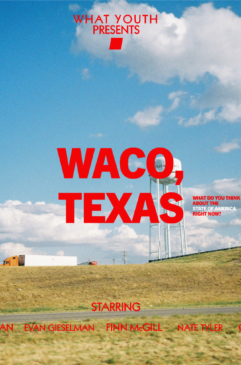
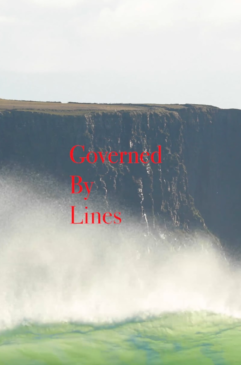
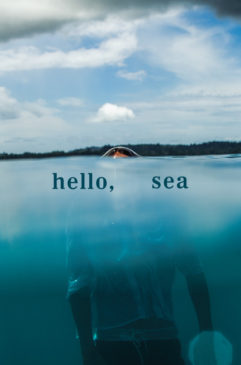
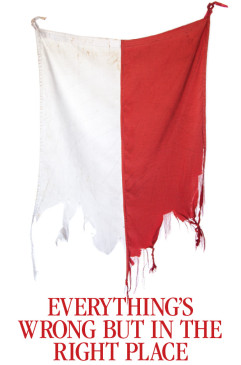
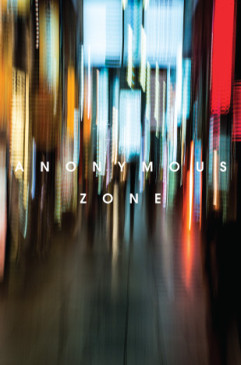
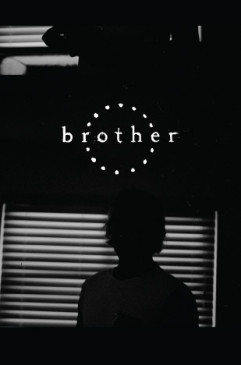
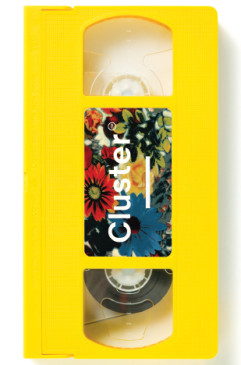
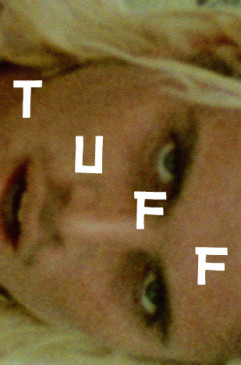
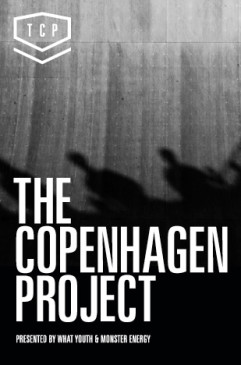
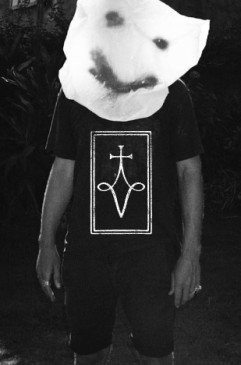
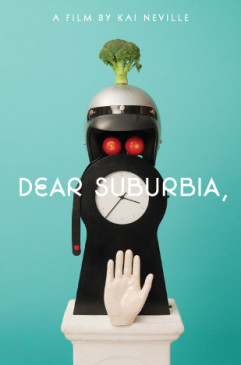
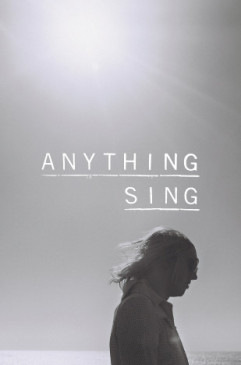


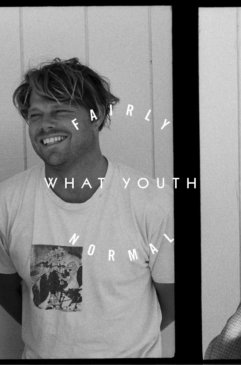
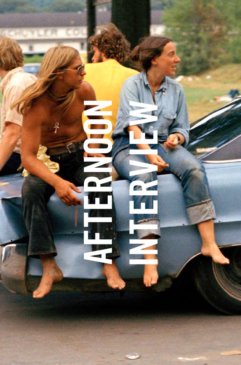
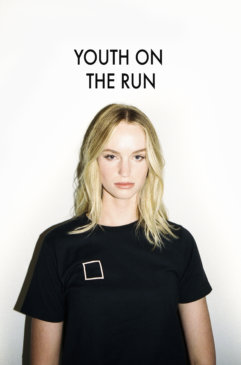
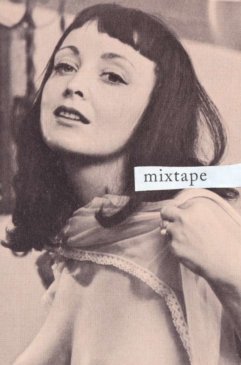
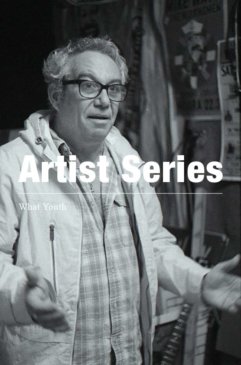
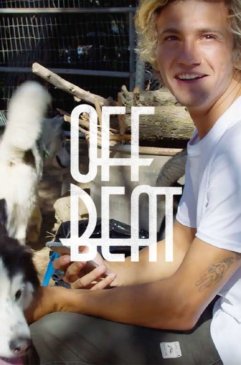
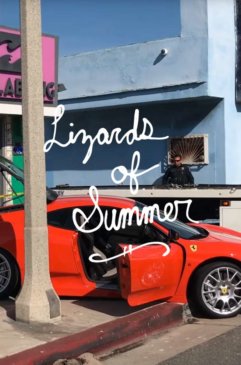
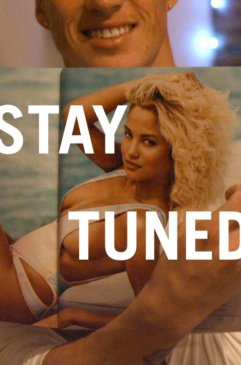
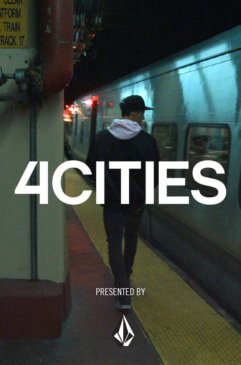
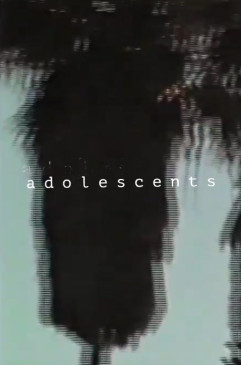
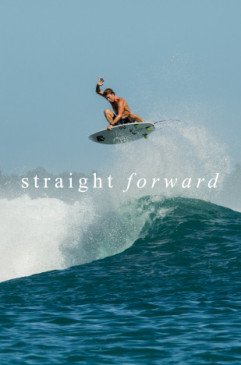
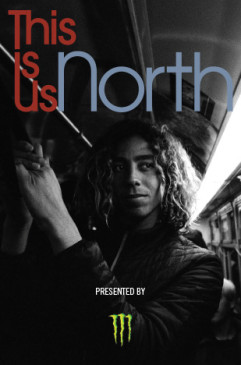
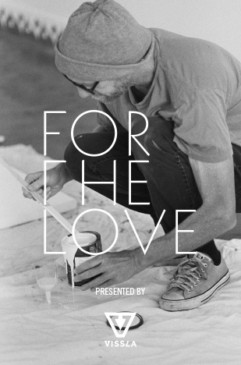
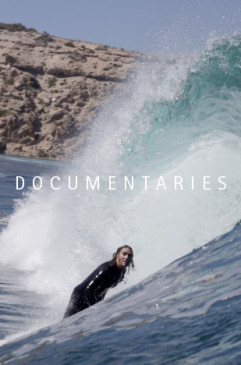
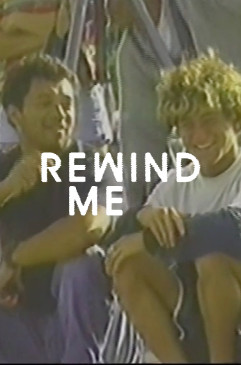
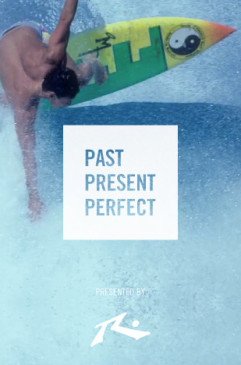
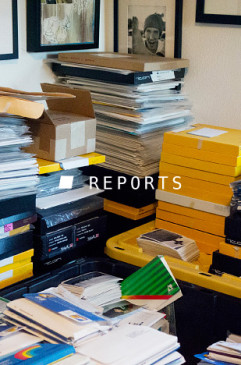
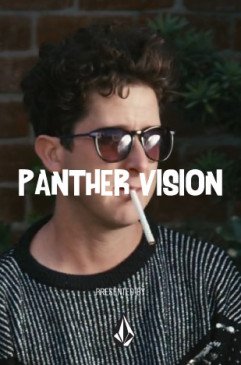
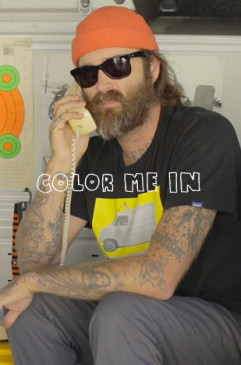
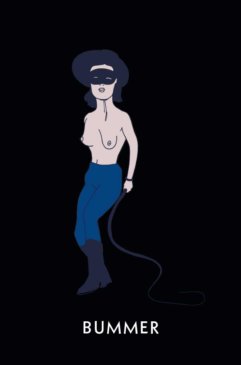
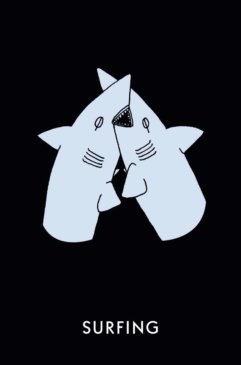
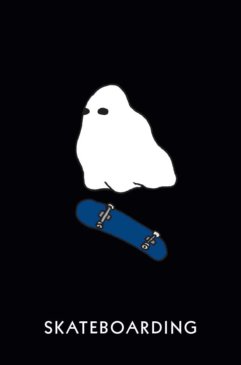
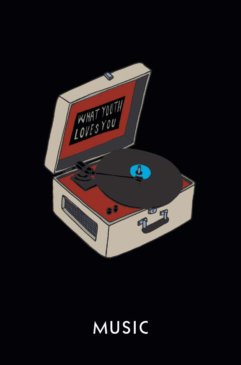
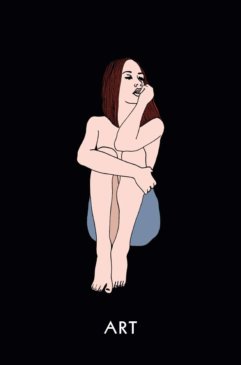
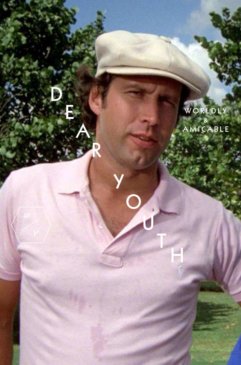
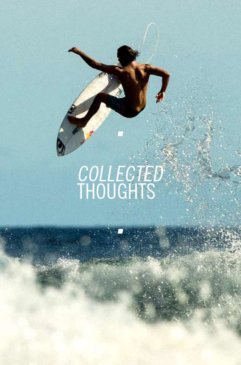


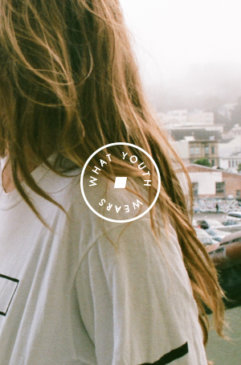

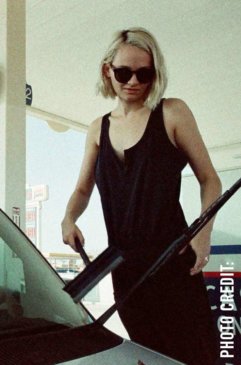


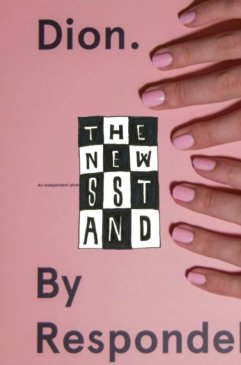
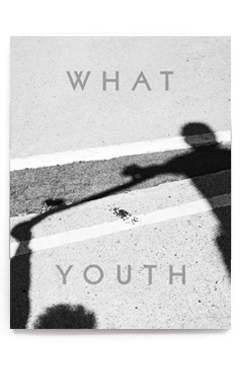
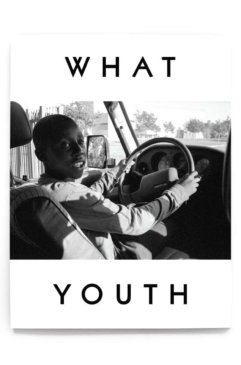
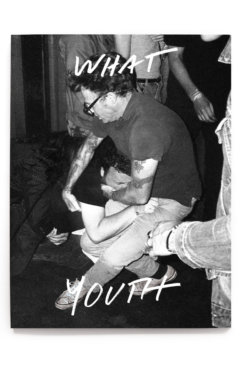
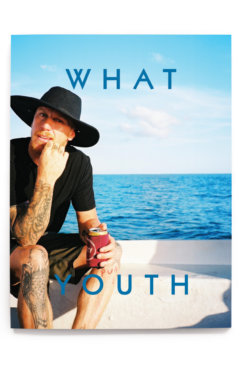
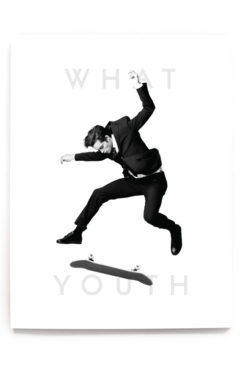
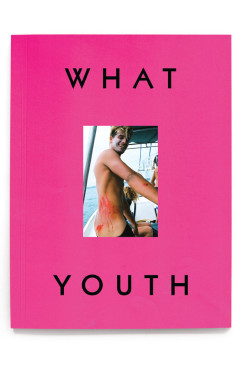
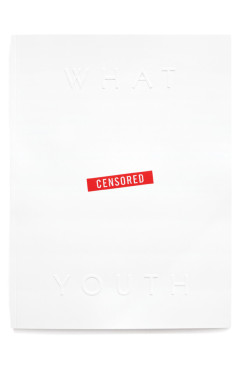
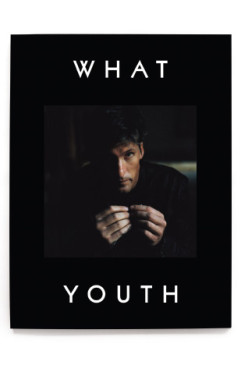
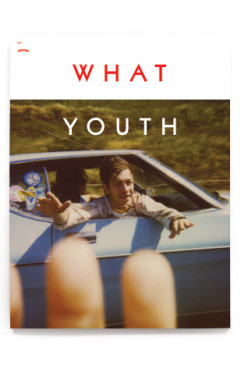
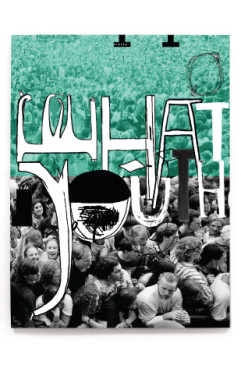
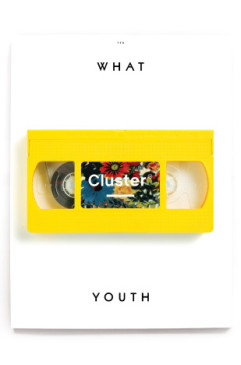
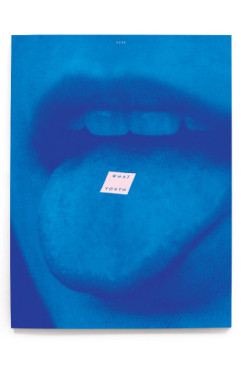
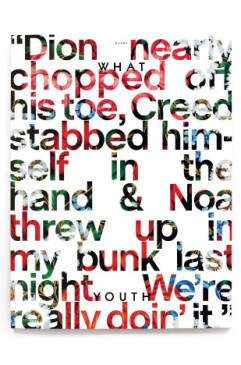
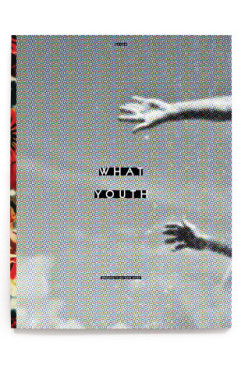
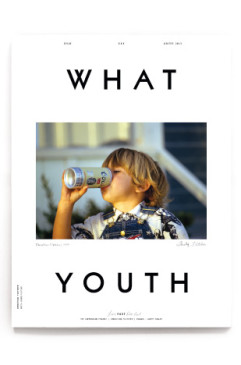
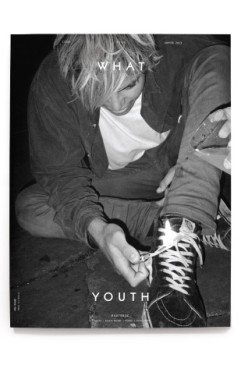
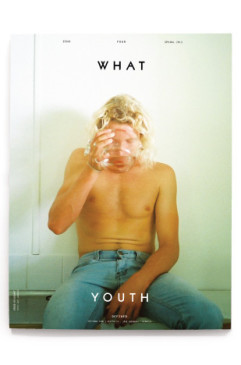
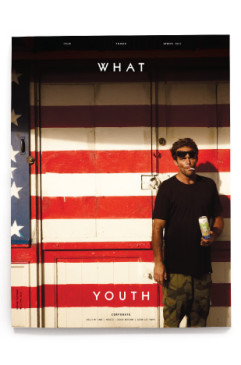
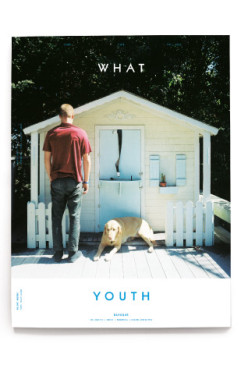
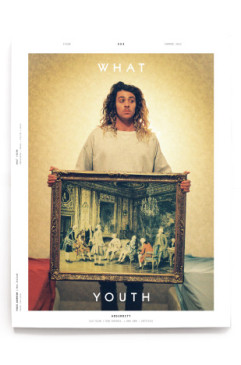
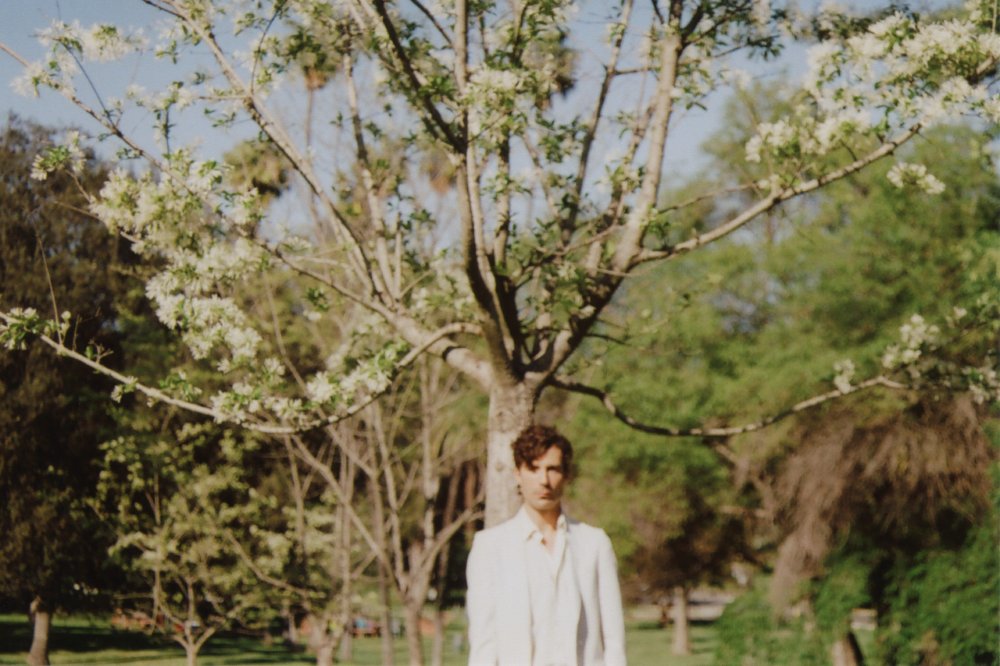
 NXT
NXT 
